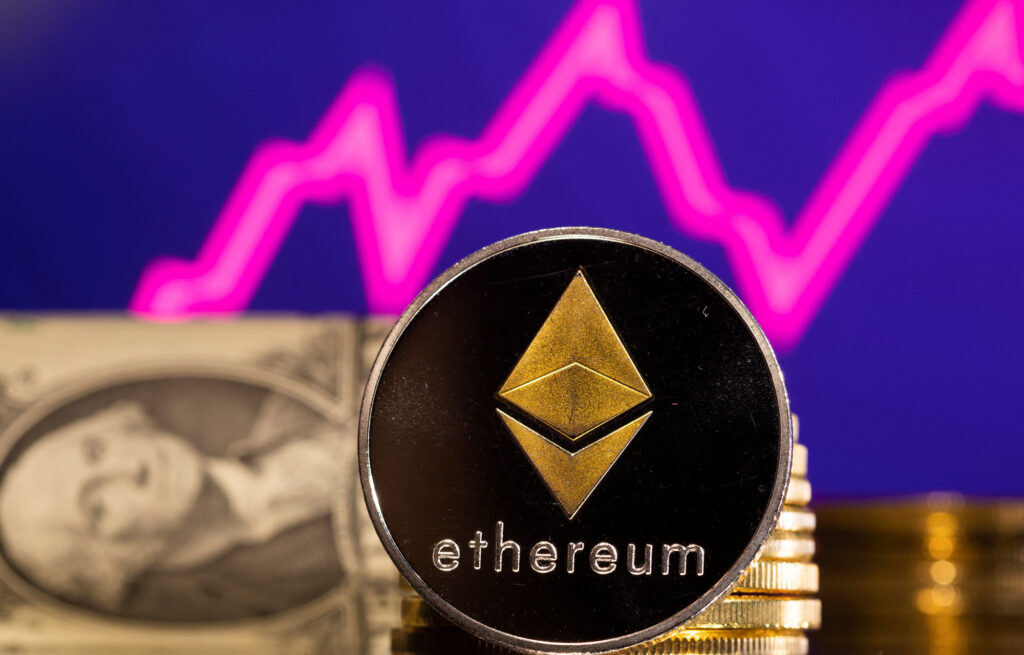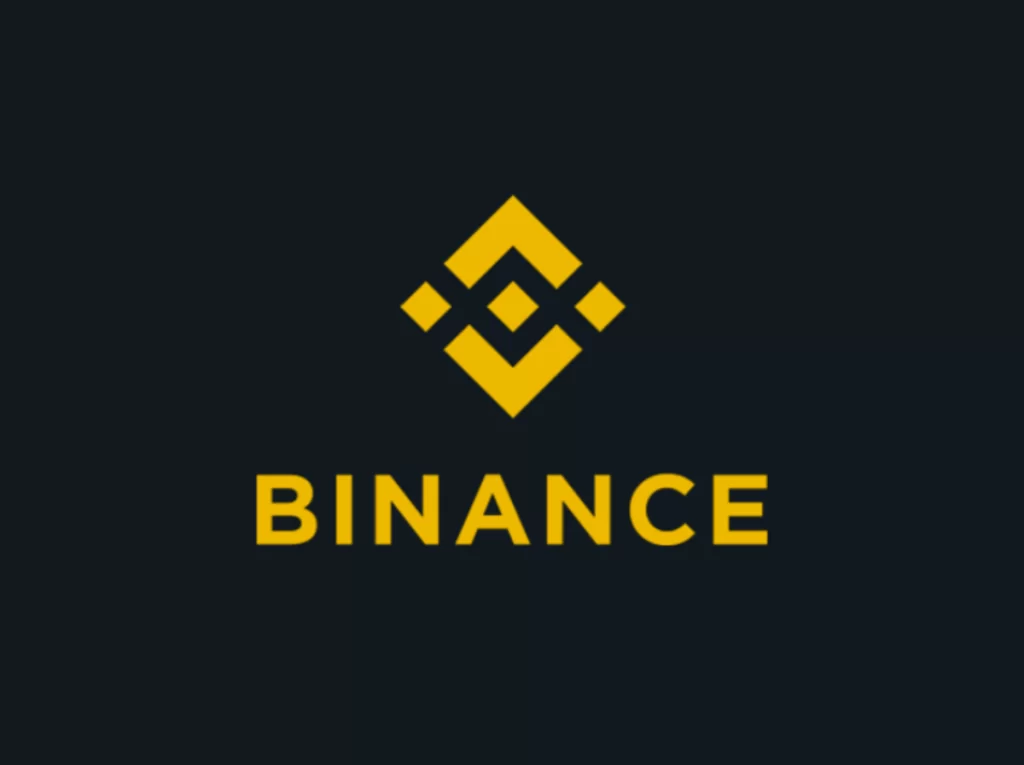Despite concerns regarding the U.S. Securities and Exchange Commission’s (SEC) engagement level with spot Ether (ETH) exchange-traded funds (ETFs) applicants, Grayscale remains optimistic about approval prospects in May.
Grayscale Chief Legal Officer Craig Salm, in a recent X post, underscored his confidence, stating, “I don’t think perceived lack of engagement from regulators should be indicative of one outcome or another […] I personally am not deterred by it and believe the ETFs should be approved.”
Salm highlighted that the groundwork laid by the approval process for spot Bitcoin ETFs has addressed many issues relevant to spot Ether ETFs, including the mechanics of creation and redemption, asset protection strategies, and custody concerns.
He suggested that the SEC’s prior engagement in these areas means that there’s less new ground to cover this time, with the exception of the complexities introduced by staking in spot Ether ETF proposals.
Notably, firms such as Ark 21Shares, Fidelity, and Franklin Templeton, which are looking to include staking features in their ETFs, face additional regulatory scrutiny.
Bloomberg analysts Eric Balchunas and James Seyffart have expressed reservations about the SEC’s apparent disengagement, recently adjusting their approval odds to a “pessimistic 25%.”
Balchunas indicated that the SEC’s stance appears more strategic than procrastinatory.
Nevertheless, the path for spot Ether ETFs seems paved by the recent approval and regulation of Ether Futures ETFs.
The classification of these products as commodity futures suggests a favorable precedent for spot Ether ETFs, given the historical correlation between futures and spot markets.
This view is supported by Coinbase Chief Legal Officer Paul Grewal and former Commodity Futures Trading Commission Commissioner Brian Quintenz.
With several prominent financial institutions, including BlackRock, VanEck, ARK 21Shares, Fidelity, Invesco Galaxy, Grayscale, Franklin Templeton, and Hashdex, applying for SEC approval, the decision anticipated by May 23 is keenly awaited.
The outcome for VanEck’s application on this date is expected to signal the fate of all pending spot Ether ETF proposals.
To submit a crypto press release (PR), send an email to sales@cryptointelligence.co.uk.
Coinbase, a leading cryptocurrency exchange, has announced a strategic shift in the management of its USD Coin (USDC) stablecoin accounts, signaling a significant move towards utilizing its Ethereum layer-2 blockchain, Base.
The transition, disclosed by Coinbase vice president Max Branzburg via a post on the social platform X on March 26, is designed to enhance the exchange’s capability to manage and secure customer funds with “lower fees and faster settlement times.”
This adjustment specifically affects Coinbase.com accounts, with Coinbase Wallet accounts remaining unaffected due to users’ control over their private keys.
Currently, the platform secures user tokens through multiparty computation technology.
Highlighting the company’s strict policy on asset management, Branzburg emphasized that Coinbase maintains a 1:1 holding of customer assets and refrains from lending funds without explicit authorization from the customers.
This move is not just a logistical change; it represents a step towards the realization of an on-chain financial ecosystem.
David Hoffman, a co-host of the Ethereum-centric Bankless show, noted this transition as a pivotal moment towards achieving such a future.
READ MORE: ARK Invest Sells Off $31.5 Million in Robinhood Shares Amid Crypto-Friendly Broker’s Stock Surge
Additionally, Ryan Sean Adams, another Bankless co-host, views this development as setting a standard for other cryptocurrency exchanges and banks, suggesting a future where every asset is tokenized and every bank operates on a blockchain.
Despite the optimism, some skepticism exists around the degree of decentralization of Base, with concerns raised over its current state of centralization, given Coinbase’s role as the sole sequencer.
However, Coinbase has expressed plans to gradually decentralize Base, reinforcing this intent by open-sourcing Base’s code in October for greater transparency and community involvement.
Launched on August 9, 2023, Base serves as an Ethereum scaling solution employing optimistic rollups for efficient off-chain transaction data storage.
It ranks as the fourth-largest Ethereum layer 2 by total value locked, boasting $2.63 billion, and recently achieved a record of 2 million daily transactions, indicating growing user engagement.
This strategic shift by Coinbase not only aims to enhance transaction efficiency and security but also signifies a broader move towards an on-chain financial infrastructure, setting a precedent for the industry at large.
To submit a crypto press release (PR), send an email to sales@cryptointelligence.co.uk.
ARK Invest, an investment management firm established by Cathie Wood, recently began selling off substantial quantities of Robinhood (HOOD) shares, a brokerage known for its cryptocurrency-friendly stance.
On March 25, ARK sold 1.6 million shares from its various funds, a trade notification revealed.
These shares, valued at $31.5 million based on Robinhood’s latest closing price of $19.08, represent a significant move by the firm.
The bulk of the sale came from the ARK Innovation ETF (ARKK), with 1,247,181 shares sold for approximately $24 million.
Additionally, ARK reduced its holdings in Robinhood by selling 275,933 shares from the ARK Next Generation Internet ETF (ARKW) and 128,137 shares from the ARK Fintech Innovation ETF (ARKF).
This marks the largest sale of Robinhood stock by ARK since it began accumulating the broker’s shares last year.
Robinhood’s stock had seen a 36% increase over the prior month, making the timing of the sale notable.
ARK’s sales strategy appears to align with compliance requirements, specifically Rule 12d3-1, which restricts funds from holding more than 5% of their total assets in securities.
Despite the recent sales, Robinhood remains a significant asset in ARK’s portfolio, ranking eighth and comprising 4.3% of ARKK’s $8.2 billion in assets under management.
ARKK’s top three holdings include Coinbase (COIN), Tesla (TSLA), and Roku (ROKU), with substantial allocations of 10.6%, 8.4%, and 7.5%, respectively.
Amidst its divestment from Robinhood, ARK has been actively purchasing shares of Roblox (RBLX), acquiring 740,115 shares valued at $27 million for its three funds on the same day.
Moreover, the firm continued to sell shares of Coinbase, parting with 4,291 COIN shares worth roughly $21 million.
Robinhood, founded in 2013, is a platform that facilitates the trading of cryptocurrencies, stocks, exchange-traded funds (ETFs), options, and other assets.
It recently expanded its offerings by launching a self-custodial wallet app for Android on March 20, 2024, further solidifying its position in the cryptocurrency space.
To submit a crypto press release (PR), send an email to sales@cryptointelligence.co.uk.
Following an unexpected rally, Bitcoin has notably rebounded, surpassing the $71,000 mark, hinting that the anticipated pre-halving dip may have concluded.
This surge came on the heels of a significant day of accumulation, as reported on March 25 by blockchain analytics firm Santiment, marking it as one of the most substantial in recent years.
Santiment highlighted that this rebound caught traders off guard, particularly as “key stakeholders” amassed a considerable amount of Bitcoin over the weekend.
Specifically, wallets categorized as “sharks” and “whales,” holding between 10 and 10,000 coins, accumulated 51,959 BTC on March 24, equating to approximately $3.4 billion.
This acquisition represented 0.263% of Bitcoin’s total available supply at the time.
With the Bitcoin halving event approaching in about three weeks, around April 19, Santiment suggested that the continued growth of these wallets could positively influence the overall cryptocurrency market caps.
Contrary to the expectations of some crypto analysts who anticipated a more significant drop ahead of the halving, Bitcoin’s decline was relatively modest.
Data from CoinGecko indicated that Bitcoin’s price only fell about 17% from its all-time high of $73,738 on March 14 to a low of $61,494 on March 20. This downturn mirrored the pre-halving retracement in 2020 closely.
Technical analyst Rekt Capital observed that the current retracement is nearly identical to the 2020 pre-halving dip, with Bitcoin’s price reducing by approximately 18% this cycle, compared to just over 19% previously.
He had earlier speculated that this year’s pre-halving retracement would likely be milder and shorter than in past cycles.
Kaiko, a crypto research firm, examined the market’s response to last week’s dip on March 25, finding that selling pressure increased after the U.S. market closed.
Their analysis pointed out that liquidity in the cryptocurrency market is fragmented not only across different exchanges but also among various trading pairs.
At the time of reporting, Bitcoin was experiencing a 5.2% increase in its value, trading at $70,252, after reaching an intraday high of $71,000 on March 25.
This recent movement underscores the volatile nature of the cryptocurrency market and the significant impact of strategic accumulations by large-scale investors.
To submit a crypto press release (PR), send an email to sales@cryptointelligence.co.uk.
The Philippines’ financial regulatory body has announced plans to restrict access to Binance, the leading global cryptocurrency exchange, due to concerns regarding its unauthorized operations within the nation.
This action is in response to the platform’s provision of investment services, such as leveraged trading and crypto savings accounts, without the necessary licenses, infringing on the Securities Regulation Code.
In collaboration with the National Telecommunication Commission (NTC), the Securities and Exchange Commission (SEC) of the Philippines aims to block Binance’s website and online trading services.
This decision was outlined in a document by the SEC dated March 25.
SEC Chairperson Emilio B. Aquino emphasized the risk posed to the security of Filipino investors’ funds if access to these platforms remains unrestricted, stating, “The SEC has identified the aforementioned platform and concluded that the public’s continued access to these websites/apps poses a threat to the security of the funds of investing Filipinos.”
To mitigate immediate disruptions, the implementation of this ban will be phased over three months, allowing investors sufficient time to close their positions with Binance.
Additionally, the SEC has approached Google and Meta to prevent Binance-related advertisements from reaching Filipino audiences.
READ MORE: StaFi Liquid Staking Protocol Launches Testnet Awaiting StaFi 2.0 Mainnet Launch
This regulatory action against Binance in the Philippines adds to the exchange’s growing list of global regulatory challenges.
Notably, in December 2023, Binance and its former CEO, Changpeng “CZ” Zhao, were fined $2.7 billion and $150 million, respectively, by a U.S. court following a CFTC lawsuit.
This legal battle, initiated in March 2023, accused Binance of contravening U.S. law by operating an illegal derivatives exchange without authorization.
The repercussions for CZ have been significant, with his agreement in November to resign from his leadership role at Binance amid a broader settlement with various U.S. regulatory bodies, including the Department of Justice and the CFTC.
Moreover, CZ admitted guilt to numerous civil infractions and a criminal charge related to violations of Anti-Money Laundering statutes.
While he awaits sentencing for money laundering charges, currently scheduled for April 30, CZ remains on a $175 million release bond.
To submit a crypto press release (PR), send an email to sales@cryptointelligence.co.uk.
Over the last month, Boyaa Interactive, a Hong Kong-based online gaming company, has seen its shares skyrocket by 318% following its decision to diversify investments into cryptocurrencies.
The company announced a $100 million initiative to invest in Bitcoin (BTC), Ether (ETH), and stablecoins such as Tether (USDT) and USD Coin (USDC), allocating $45 million to BTC, $45 million to ETH, and $10 million to stablecoins.
As part of this strategic move, Boyaa Interactive disclosed the purchase of 1,110 Bitcoin at an average price of $41,790 each, 14,855 Ether at approximately $2,777 per unit, and around 8,000,000 units of Tether.
The firm expressed its intention to double down on its crypto investments with an additional $100 million.
This investment comes at a time when Boyaa’s core business, online gaming, continues to perform solidly, generating 100 million yuan ($13.90 million) in revenue and 32.05 million yuan ($4.46 million) in earnings, witnessing growth rates of 6% and 72%, respectively.
The broader context includes a bearish stock market in China, with many firms holding large cash balances and trading below their book values.
The NFT market has shown varying degrees of volatility, illustrated by the floor price of “Nobody,” a collection by legendary director Stephen Chow, which dropped over 70% within a month.
READ MORE: Bitcoin Nears $60K Amid Weekend Sell-Off; Market Eyes ETF Resurgence and Futures Gap for Recovery
Despite promotional efforts, the collection’s trading volume has stagnated after an initial surge.
Similarly, the Bruce Lee Foundation’s NFT collection and Wassie Avatars have experienced dramatic price fluctuations, reflecting the speculative nature of the NFT market despite its recovery from lows in 2020-2021.
Regulatory scrutiny in Hong Kong has increased, with the Securities & Futures Commission (SFC) adding crypto exchange Bybit and its investment products to its investment warning list.
This action underscores the regulatory requirements for operating within the city and the criminal implications of non-compliance.
Concurrently, discussions about a potential spot Bitcoin ETF in Hong Kong hint at a more direct and cost-efficient structure compared to those in the United States, indicating a keen interest in pioneering such financial products in the region.
This period signifies a dynamic phase for Hong Kong’s crypto landscape, marked by significant investments, regulatory developments, and speculative NFT market movements.
To submit a crypto press release (PR), send an email to sales@cryptointelligence.co.uk.
In recent developments, Bitcoin may be witnessing a shift in momentum as institutional outflows diminish.
According to data from the UK-based investment firm Farside, the Grayscale Bitcoin Trust (GBTC) experienced a modest reduction of $170 million on March 22.
This comes amid discussions surrounding the United States Spot Bitcoin exchange-traded funds (ETFs), which have faced challenges, including decreased inflows and record-high outflows from GBTC, signaling a potential consolidation phase before Bitcoin tests its all-time high again.
Notably, the series of GBTC outflows coincided with reports of the bankrupt crypto lender Genesis liquidating its GBTC holdings.
This sell-off could be nearing its end, potentially easing the downward trends observed in ETFs.
Investor Alistair Milne highlighted a significant slowdown in GBTC selling, leading to a decrease in net outflows from Bitcoin ETFs to -$51.6 million. Milne’s observation raises the possibility of a momentum shift in the market.
Supporting this perspective, statistician Willy Woo introduced a new model that correlates ETF inflows with Bitcoin’s price movements, suggesting the most intense selling phase might have concluded.
READ MORE: SEC Delays Decision on Ether ETFs, Casting Doubt on Approval Odds Amidst Growing Skepticism
Woo anticipates continued market choppiness leading up to the Bitcoin halving event, echoing a sentiment for potential consolidation.
Echoing optimism, WhalePanda, a pseudonymous commentator, predicts a sideways market trend, potentially setting the stage for Bitcoin’s ascent to new all-time highs.
The commentator points to a significant demand for Bitcoin inflows to match the coin’s daily emission rate, which is expected to halve soon, further tightening supply.
However, GBTC faces criticism for its diminishing assets under management (AUM), now holding just half of its AUM since its ETF conversion.
Critics argue that GBTC’s reduction is beneficial for the Bitcoin ecosystem, with Vijay Boyapati blaming it for market instability and hindering Bitcoin’s growth.
Despite these challenges, spot Bitcoin ETFs have been historically successful, amassing $12.15 billion in cumulative flows.
Cathie Wood of ARK Invest anticipates more institutional engagement in the near future, signaling continued interest and investment in Bitcoin.
To submit a crypto press release (PR), send an email to sales@cryptointelligence.co.uk.
The past week has been a rollercoaster for the cryptocurrency market, marked by significant events that shaped the landscape.
Unexpectedly, meme coins grabbed headlines, major cryptocurrencies experienced setbacks, and prominent figures voiced their opinions on the market’s future.
In a surprising turn of events, the “Book Of Meme” (BOME/USD) made remarkable gains, outshining its competitor, the so-called “Dogecoin Killer,” Shiba Inu (SHIB/USD).
On Sunday, BOME reported a 6.4% increase in its price and a significant 13.4% rise in trading volume, with a notable $1.5 billion in trades.
This surge was further bolstered by Binance’s announcement of BOME’s upcoming listing on both its spot market and futures platform.
The same week, major cryptocurrencies faced a downturn, with Tuesday highlighting a dramatic fall.
The sector saw over $650 million in liquidations within a day, largely due to Bitcoin’s (BTC/USD) decline below the $63,000 mark.
This drop resulted in an 8% shrinkage of the market cap within a mere 24 hours.
READ MORE: Bitcoin Futures Volatility Surges: Open Interest Hits $36 Billion Amid Price Fluctuations
In the midst of market turmoil, Robert Kiyosaki, the author of ‘Rich Dad Poor Dad,’ shared his investment insights.
He advocated for gold, silver, and Bitcoin as preferable investments over stocks and bonds, citing China’s economic volatility and its “foolish” financial strategies as a backdrop for his advice.
Further adding to the discourse, 10x Research released a report forecasting a downturn in Bitcoin’s value.
This prediction came to pass as Bitcoin fell by 13% over the week, underscoring the report’s identification of risk factors and potential support levels should the downturn persist.
Controversy also arose from Peter Schiff, a known Bitcoin skeptic, who criticized CNBC’s “Squawk Box” for allegedly displaying a bias towards Bitcoin.
He accused the show of highlighting the cryptocurrency’s successes while overlooking its failures, specifically pointing out a lack of coverage on a significant 6% loss Bitcoin suffered overnight.
These developments reflect the volatile nature of the cryptocurrency market, with fluctuations driven by various factors from market sentiment to economic conditions, illustrating the unpredictable journey of digital currencies.
To submit a crypto press release (PR), send an email to sales@cryptointelligence.co.uk.
Ether recently encountered significant resistance at the $4,100 level on March 12, leading to a 9% drop in its price over the past week, a sharper decline than the broader cryptocurrency market, which saw a 2.5% decrease in total market capitalization.
This downturn has prompted speculation about the durability of Ether’s current $3,200 support level.
A key potential driver for Ether is the possibility of the U.S. Securities and Exchange Commission (SEC) approving a spot Ethereum exchange-traded fund (ETF), with a decision expected by May 23.
Yet, Bloomberg’s James Seyffart remains skeptical of approval, stating, “However, Bloomberg senior ETF analyst James Seyffart does not consider approval as his base scenario.”
Despite the price setback, the Ethereum network saw significant upgrades with the Dencun hard fork on March 13, aimed at improving scalability and layer-2 data processing.
This update has led to reduced transaction fees on platforms like Arbitrum, Optimism, and Base, bolstering the case for layer-2 solutions among Ethereum users.
Cointelegraph highlights this trend, noting, “Data indicates a surge in 7-day volumes for Arbitrum, Optimism, and Base by 145%, 144%, and 203%, respectively, thereby alleviating some of the downward pressure on Ether’s price that was attributed to high gas fees.”
However, competition from networks like BNB Chain and Solana, which offer lower base-layer transaction fees, remains fierce.
1Despite this, Ethereum continues to see positive ecosystem developments, even as regulatory scrutiny in the U.S. intensifies, with the SEC investigating connections to the Ethereum Foundation to potentially classify Ether as a security.
The recent SEC actions, especially in light of Ethereum’s shift to proof-of-stake, have led to a mixed response from the market and industry figures.
Some, like Van Buren Capital and lawyer Scott Johnsson, view the SEC’s scrutiny as a potential obstacle to Ether ETF approvals, while Coinbase’s chief legal officer, Paul Grewal, contends, “The SEC has no valid reason to reject the Ether ETP applications.”
Market sentiment, as gauged by the ETH options 25% delta skew, reflects a cautious stance, with a recent shift from 0% to 5%, indicating skepticism but not outright bearishness towards the $3,200 support.
Despite this, Ethereum’s position as a leading network, with a total value locked (TVL) of $94 billion and BlackRock’s initiative to launch a tokenized asset fund on Ethereum, underscores its enduring significance.
This backdrop suggests that, despite current challenges, Ether’s foundational support level remains robust.
To submit a crypto press release (PR), send an email to sales@cryptointelligence.co.uk.
FTX, the cryptocurrency exchange that went bankrupt, is in the process of selling its investment in the artificial intelligence company Anthropic, valued at approximately $1 billion.
This move is part of FTX’s strategy to address its bankruptcy debts, a situation reported by CNBC on March 22.
Anthropic, an AI firm, is currently evaluating potential buyers for FTX’s stake, with a transaction expected to finalize within the next few weeks.
Sources close to the situation, preferring anonymity due to the sensitive nature of the financial discussions, informed CNBC of these developments.
The method of sale involves a special purpose vehicle (SPV), a separate corporate entity created to fulfill legal obligations during insolvency situations, indicative of FTX’s current financial state.
Interestingly, the sources revealed that Saudi Arabian entities have been excluded from the bidding process over national security concerns, although it remains unclear if this exclusion pertains to all Saudi investors or just state-related ones. It’s important to note that the shares in question are “Class B” non-voting shares.
The potential sale follows a decision by the Delaware Bankruptcy Court, where Judge John Dorsey authorized FTX to liquidate its Anthropic shares on February 22.
FTX initially acquired these shares for about $530 million in April 2022, and their value has nearly doubled since, propelled by the surge in generative AI technology, now estimated to be worth around $1 billion.
This development surfaces as FTX’s former CEO, Sam Bankman-Fried, prepares for his sentencing hearing on March 28, after being convicted on seven counts of fraud in November 2023.
Describing Bankman-Fried’s actions, U.S. Attorney Damian Williams stated, “a multibillion-dollar scheme designed to make him the king of crypto,” and highlighted the scale of the fraud as one of the most significant financial deceptions in U.S. history.
To submit a crypto press release (PR), send an email to sales@cryptointelligence.co.uk.












